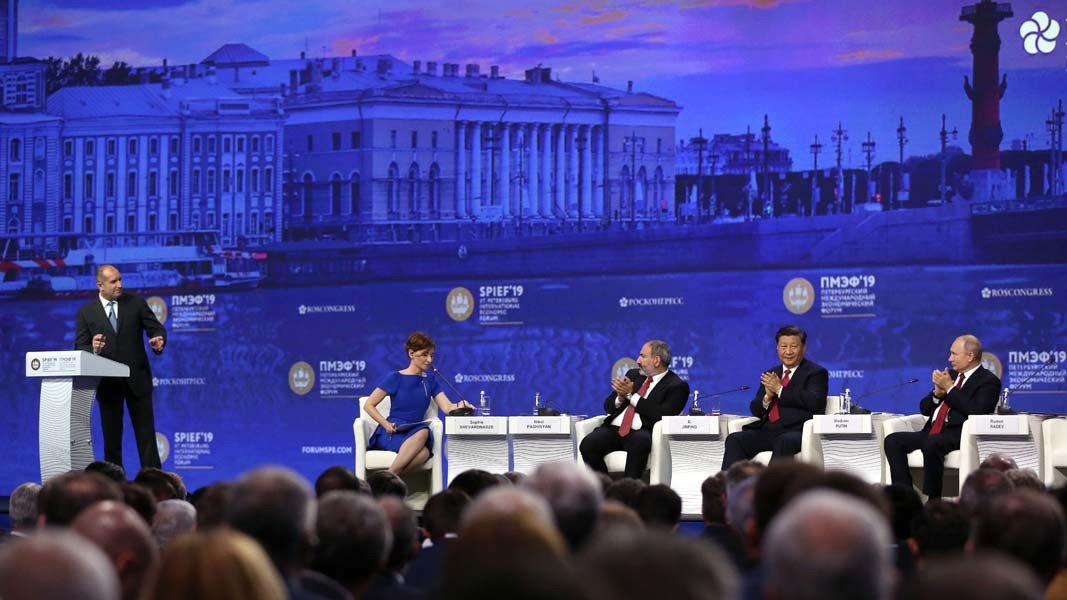At their meeting last week, in the framework of the St. Petersburg International Economic Forum, the presidents of Russia and Bulgaria discussed development of bilateral relations. Vladimir Putin pointed out that they were "gradually recovering" and Rumen Radev said that the centuries-old historical, cultural and spiritual ties between the two countries should imply much more active cooperation in economy, energy and culture. A little more than a year ago, in his talks with Rumen Radev in Moscow, the Russian head of state had wished for "a resumption of full-blown Russian-Bulgarian relations." Recent assessments by the presidents show that there has been progress in relationships but serious, obstacles to their development remain, including political ones.

A testimony to this is the argument between the two during discussions at the St. Petersburg forum, which some media described as a "clash". Putin said that Bulgaria had lost from stopping the South Stream gas pipeline project for transit of Russian gas through its territory. According to him, this was not a sovereign decision and the price for Bulgaria was lost investments in South Stream. President Radev replied that he could not agree with the statement that Bulgaria's sovereignty was limited because "South Stream" was not only a Bulgarian but also a European project and the decision was a joint one. The EU's newest energy policies, to which Bulgaria adheres, aim at diversification and competitiveness of energy supplies and, according to Radev, created an opportunity for Russia to expand its presence on gas markets in Southeastern and Central Europe. This fact, according to the Bulgarian head of state, calls for an answer to the question of how Bulgarian-Russian strategic cooperation could be continued under the new conditions.
During the President's visit to Russia, there was a clear difference seen in views on strategic issues in energy partnership. President Radev called for a much more flexible approach and mechanisms regarding contracts for long-term supply of energy resources, their updating and price reduction. Thus, the president hinted he was expecting a change in Russia's pricing policy for gas supplies to Bulgaria, but Putin said the price of gas was tied to the price of oil and was "fair".
Speaking about prices at the level of heads of states is not something usual as such discussions are more appropriate for government and experts’ level meetings. Some political observers commented that at an economic forum like the one in St. Petersburg it would have been better for President Radev to be accompanied by the ministers of energy, tourism and economy, as these are the largest spheres of business relations between the two countries. Vladimir Putin's meeting with Rumen Radev in St. Petersburg has shown that at the highest political level there is will for building constructive dialogue towards restoring traditional good relations, although their "full-blown" recovery wished for a year ago by the Russian head of state is not yet a reality.
English: Alexander Markov
Photos: BGNESSerbia and Bosnia and Herzegovina refused to sign the SEECP declaration The summit of the South East European Cooperation Process (SEЕCP), held in Tirana under the Albanian presidency, ended without Serbia and Bosnia and Herzegovina..
Lobbying, negligence or even a breach in national security - how does Skopje manages to learn in advance about Bulgarian proposals related to European documents? This question came after the Prime Minister of our south-western..
Another peak in tensions between Sofia and Skopje. The reason is the upcoming vote on June 4 in the European Parliament Committee on Foreign Affairs on a declaration regarding the progress of the Republic of North Macedonia in its integration..

+359 2 9336 661
